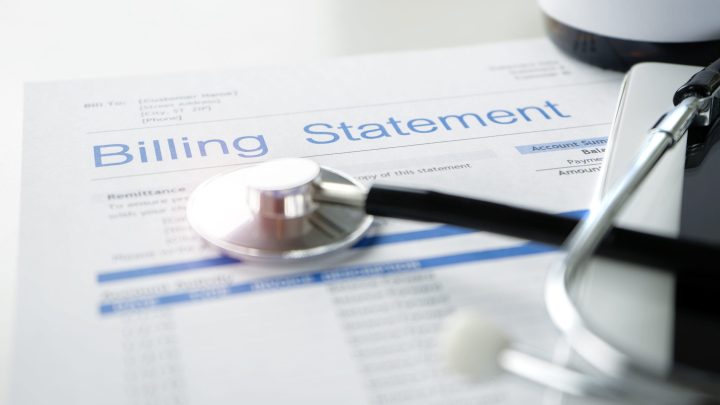
How can we build a better health care system?
How can we build a better health care system?

The leading cause of personal bankruptcies in America? Debt to pay back medical bills. Experts say 3 million people have more than $10,000 in medical debt each and 100 million have at least some.
“Marketplace Morning Report” host David Brancaccio recently hosted a panel and audience discussion in St. Paul, Minnesota, exploring medical debt. Among the panelists were Allison Sesso with a national nonprofit called RIP Medical Debt, which takes donations to cancel debt for people; University of Minnesota healthcare economist Jennifer Schultz; and Minnesota Attorney General Keith Ellison.
Attorney General Ellison explained proposed legislation in Minnesota that aims to curb the fallout that medical debt has on families in the video above. An edited transcript of part of the conversation is below.
Minnesota Attorney General Keith Ellison: This is the debt that you and I don’t ask for. You didn’t ask to get cancer. So many aspects of medical debt are things that are surprises, that we don’t have any chance to shop for.
David Brancaccio: I didn’t fully understand this: If a spouse were to die, the other spouse is responsible for the debt?
Ellison: The debt switches over.
Brancaccio: Why is that?
Ellison: Because the Minnesota State legislature years ago was influenced by people with a lot of influence.
Brancaccio: So, would the act address that?
Ellison: Yes, it would, it would ban that practice. We also would say that you couldn’t be denied non-emergency care if you have an outstanding balance.
Brancaccio: So that happens? So, if someone shows up and are in need, and they say, “Well, you’ve got some debt.”
Ellison: And we’re trying to codify into law you can’t report a medical debt to a credit bureau, because you didn’t ask for this debt. It really not an indicator of your credit worthiness.
Brancaccio: Jennifer, your views on pharmaceutical prices, because it can be complex …
Jennifer Schultz: As a country, we pay the highest prices for brand name drugs in the world. New this year, Medicare beneficiaries will not pay more than $2,000 out of pocket for prescription drugs per year. That is a huge win — you need to tell everybody about that.
Ellison: So, Jen, these drugs cost a lot of money. But isn’t it also true that we subsidize them as the taxpayer?
Schultz: Most of the research on drugs is done at our R1 (research and development) academic institutions that are paid for with NIH money that is paid for by our taxpayers.
Brancaccio: I mean, I should point out that it’s not like the pharmaceutical companies don’t put any money in and most drugs don’t work. But it still sits wrong …
Schultz: Because the marginal cost of producing the drug once you have the patent or once you have something that’s effective is very small.
Brancaccio: We have an interesting follow up question: What do you think will be the impact on medical debt of Ozempic, the weight loss drugs that seem very effective, but are expensive?
Schultz: Well, if we can reduce the price, and we reduce obesity, that can save in the long run. The government doesn’t budget in long runs. It doesn’t look at the savings over 10 or 30 years, but it could lead to actually reducing healthcare costs.
Brancaccio: Julie has a question. It’s quite practical. Are there free financial resources if they open up one of these bills and they know they cannot handle it?
Allison Sesso: Yeah, everyone should go to the hospital or the provider and ask about financial assistance. Tell your story. Whatever you do, don’t put it on a credit card. Once you put it on a credit card, it’s consumer debt — it’s not medical debt anymore. So, all the protections he’s putting in place will not apply. Also be really mindful of signing up for this “great plan” that the hospital is telling you to sign up for that has either a high interest rate or you can’t afford the monthly bills. And definitely don’t not pay your rent or other bills because you have a medical debt.
Schultz: And they also shouldn’t sign consent forms when they’re in the hospital before they get care. You’ll get the care even if you don’t sign it.
Brancaccio: You have a choice?
Schultz: If it’s an emergency situation, they have to provide care.
There’s a lot happening in the world. Through it all, Marketplace is here for you.
You rely on Marketplace to break down the world’s events and tell you how it affects you in a fact-based, approachable way. We rely on your financial support to keep making that possible.
Your donation today powers the independent journalism that you rely on. For just $5/month, you can help sustain Marketplace so we can keep reporting on the things that matter to you.


















